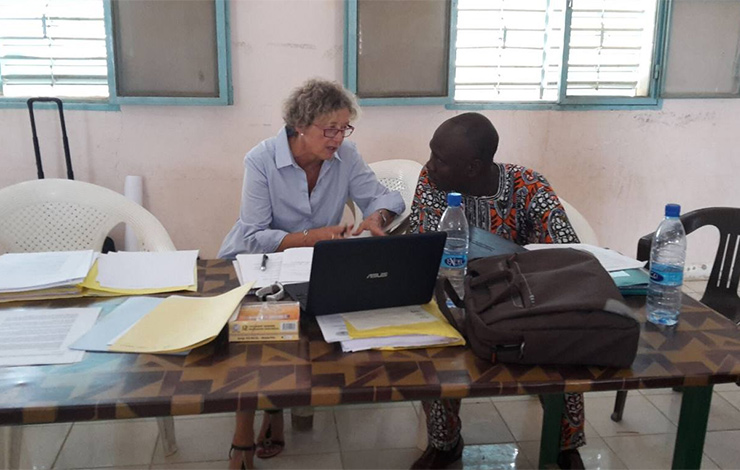Among African countries that still criminalize homosexual acts, Cameroon has one of the highest arrest and prosecution rates of LGBTI persons. To combat intolerance and homophobia in Cameroon, ASF-France provided technical trainings on human rights and emergency defense for LGBTI persons, lawyers, members of the judiciary, and prison services. ASF-France also complemented these activities with a series of trainings on advocacy techniques for civil society organizations and local media.
Challenge

Cameroon has one of the highest numbers of arrests and prosecutions of LGBTI persons among countries that criminalize homosexual acts in Africa. Homosexual relationships are still considered a crime under Article 347 bis of the Penal Code in Cameroon and offenders may face six months to five years in prison and a fine of 20.000 to 200.000 CFA.
While many civil society organizations (CSOs) have tried to protect the rights of LGBTI persons and the number of reported cases of harassment, marginalization, discrimination and abuse based on sexual orientation or gender identity, real or assumed, in Cameroon since 2011 has increased, numerous circumstances have resulted in a difficult operational environment for CSOs. Realities like the wave of indictments of homosexuals in 2005; regular arrests since 2010; and recent attacks against human rights defenders of LGBTI persons all force CSOs to operate in a climate of insecurity, hatred and impunity. Recurrent waves of attacks against human rights defenders in Cameroon who support sexual and gender minorities show that it is particularly important for the country to fulfill its obligation to protect all of its citizens. On 15th of July 2013, prominent Cameroonian gay rights activist and journalist Eric Lembembe was murdered in Yaoundé. His neck and feet appeared to have been broken, and his face, hands, and feet burned with an iron . This awful crime once again illustrates the climate of hatred and impunity in Cameroon. As a result, CSOs defending the rights of LGBTI persons are hardly identifiable outside of Yaoundé and Douala and for that reason it is difficult to obtain accurate information on violations of LGBTI persons’ rights.
However, since the beginning of 2011, ASF France and its partners have noticed .Powered by articles or official statements, homophobia is omnipresent.
Program Summary
In this context, ASF-France and its partners aim to provide assistance and protection to LGBTI persons and their advocates to strengthen their role and legitimacy in Cameroon. To do so, ASF France uses a comprehensive approach, which takes into account all of the actors concerned by the rights of LGBTI persons’– bringing together lawyers, judges, police officers, prison officers, local media and CSOs.
One of the project's objectives was to protect LGBTI persons and their lawyers, who are often intimidated and threatened for providing legal assistance and technical support. Another objective was to strengthen the legitimacy and visibility of local CSOs fighting against LGBTI discrimination by facilitating effective networking between CSOs as well as interactions with local authorities. Finally, the project improved the dialogue between the judicial authorities and prison services by bringing these parties together and providing appropriate trainings on LGBTI rights in order to change the homophobic views that are present in local courts.
The project achieved these objectives through the following activities:
- Legal Assistance and Emergency Defense for at least two LGBTI persons and their supporters that have been threatened;
- Advocacy training provided to the Cameroonian CSOs and local media;
- Technical training on Human Rights, particularly on LGBTI’s rights, for members of the judiciary and prison services.
Impact
This project improved the overall adherence to citizens' fundamental rights in Cameroon, and in particular, LGBTI persons' right to equal treatment, absence of discrimination, and the right to life and security ( 4.1. and 4.2. of WJP Index). Following the worsening climate of intolerance and homophobia at all levels of the Cameroonian society, many LGBTI persons conceal in vulnerable and marginalized communities in order to avoid reprisal. By ensuring LGBTI persons have access to adequate physical and legal protection, they are more likely to go to the relevant authorities when their rights are violated. Consequently, the program worked to improve their right to freedom of opinion and expression, as well as protecting their right to arbitrary interference with privacy would be reduced (4.4 and 4.6.). Finally, by involving judicial and prison services, the project changed the way violations of LGBTI’s right to life and security are handled and it stopped discriminatory practices that undermine LGBTI persons’ ability to access justice and effective legal remedies (8.4. and 4.3.).

